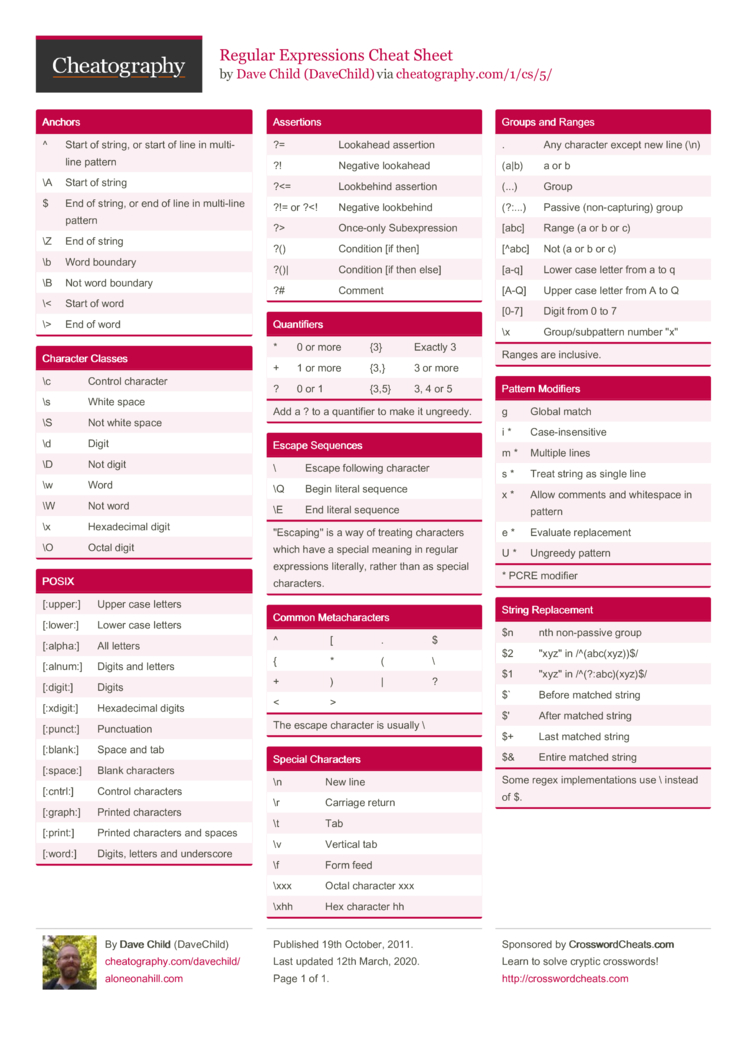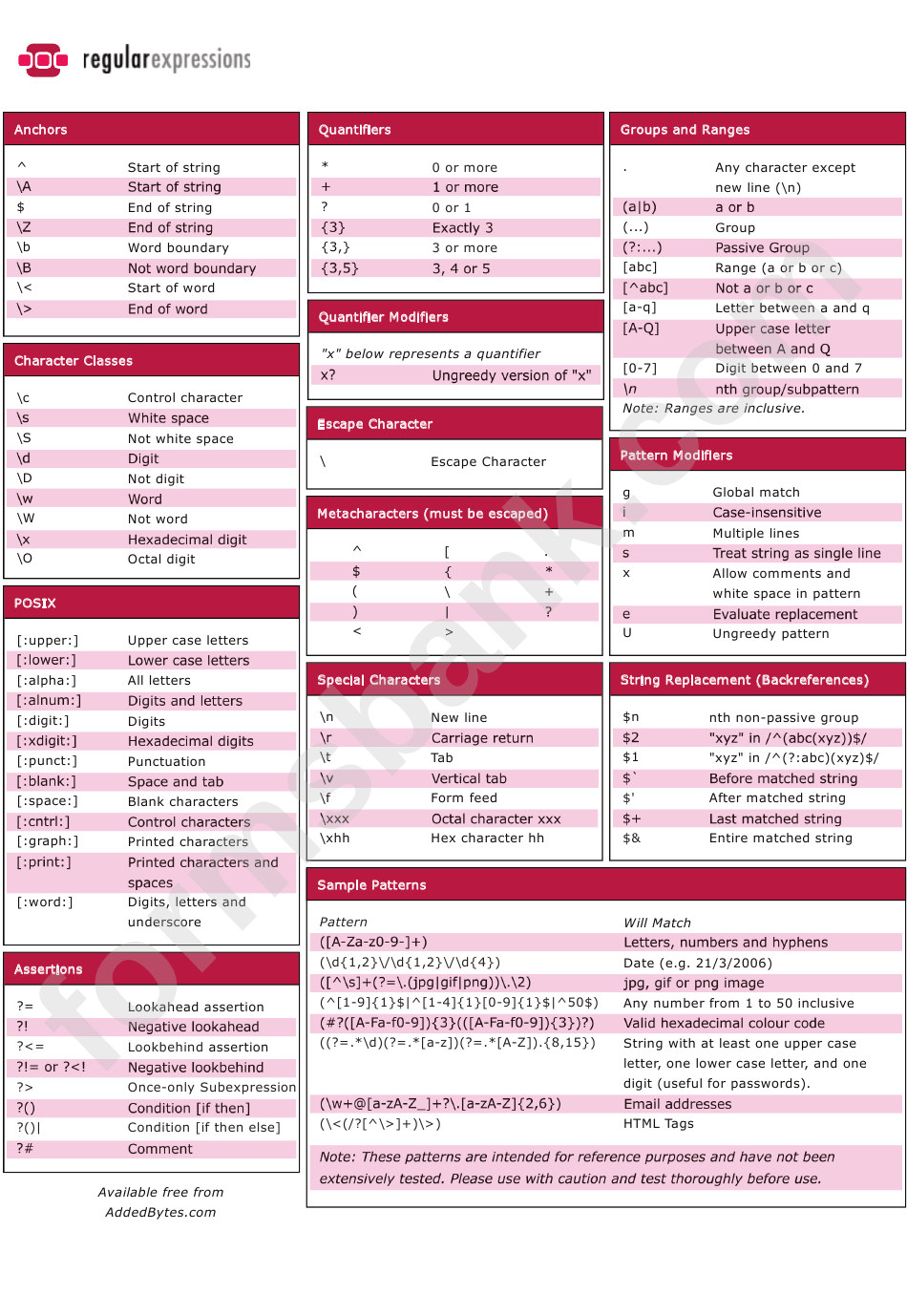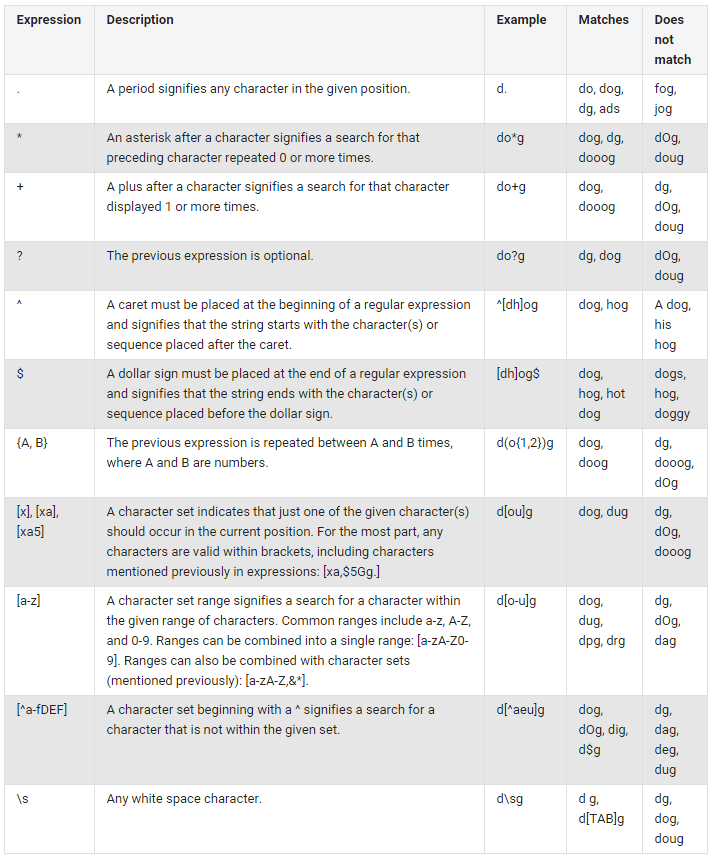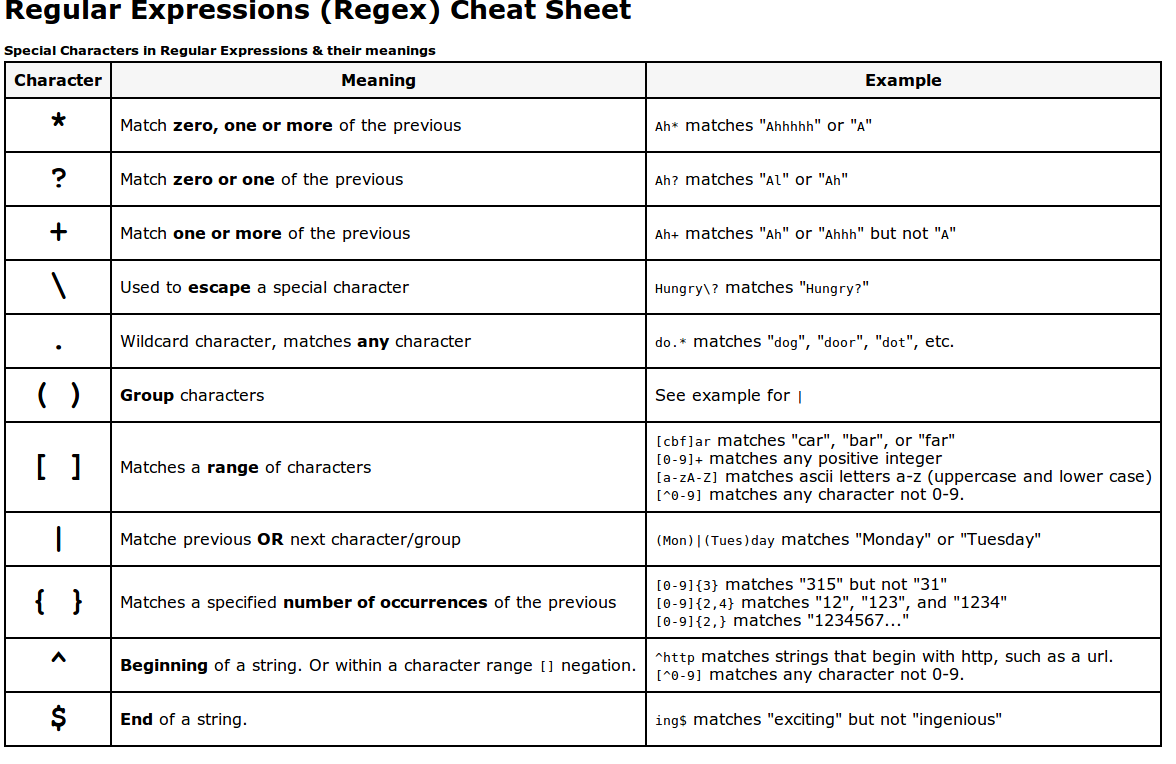Google Sheets Regular Expressions - Sample usage =regexextract(my favorite number is 241, but my friend's is 17, \d+) tip: Extracts the first matching substrings according to a regular expression. Each example includes the type of text to match, one or more regular expressions that match that text, and notes that explain the use of the special. Replaces part of a text string with a different text string using regular expressions. Replaces part of a text string with a different text string using regular expressions. Extracts the first matching substrings according to a regular expression. To create a regular expression, you must use specific syntax—that is, special characters and construction rules. For example, the following is a simple regular expression that. The following examples illustrate the use and construction of simple regular expressions. Regexextract will return 241 in this example because it returns.
Each example includes the type of text to match, one or more regular expressions that match that text, and notes that explain the use of the special. The following examples illustrate the use and construction of simple regular expressions. Extracts the first matching substrings according to a regular expression. Extracts the first matching substrings according to a regular expression. Regexextract will return 241 in this example because it returns. Replaces part of a text string with a different text string using regular expressions. Sample usage =regexextract(my favorite number is 241, but my friend's is 17, \d+) tip: For example, the following is a simple regular expression that. To create a regular expression, you must use specific syntax—that is, special characters and construction rules. Replaces part of a text string with a different text string using regular expressions.
To create a regular expression, you must use specific syntax—that is, special characters and construction rules. Replaces part of a text string with a different text string using regular expressions. Extracts the first matching substrings according to a regular expression. For example, the following is a simple regular expression that. Replaces part of a text string with a different text string using regular expressions. The following examples illustrate the use and construction of simple regular expressions. Regexextract will return 241 in this example because it returns. Extracts the first matching substrings according to a regular expression. Each example includes the type of text to match, one or more regular expressions that match that text, and notes that explain the use of the special. Sample usage =regexextract(my favorite number is 241, but my friend's is 17, \d+) tip:
Regular Expression Match. RegexMatch() in Google Sheets YouTube
To create a regular expression, you must use specific syntax—that is, special characters and construction rules. Each example includes the type of text to match, one or more regular expressions that match that text, and notes that explain the use of the special. Regexextract will return 241 in this example because it returns. Extracts the first matching substrings according to.
Regular Expressions Cheat Sheets Images
Replaces part of a text string with a different text string using regular expressions. To create a regular expression, you must use specific syntax—that is, special characters and construction rules. The following examples illustrate the use and construction of simple regular expressions. Replaces part of a text string with a different text string using regular expressions. Each example includes the.
GoogleRegularExpressionsCheatSheet.Pdf DocsLib
The following examples illustrate the use and construction of simple regular expressions. Extracts the first matching substrings according to a regular expression. Extracts the first matching substrings according to a regular expression. To create a regular expression, you must use specific syntax—that is, special characters and construction rules. For example, the following is a simple regular expression that.
Regular Expressions Cheat Sheet printable pdf download
Each example includes the type of text to match, one or more regular expressions that match that text, and notes that explain the use of the special. Extracts the first matching substrings according to a regular expression. Replaces part of a text string with a different text string using regular expressions. To create a regular expression, you must use specific.
How to Remove HTML Tags in Google Sheets
Extracts the first matching substrings according to a regular expression. Replaces part of a text string with a different text string using regular expressions. The following examples illustrate the use and construction of simple regular expressions. Sample usage =regexextract(my favorite number is 241, but my friend's is 17, \d+) tip: Extracts the first matching substrings according to a regular expression.
Google Analytics Regular Expressions Cheat Sheet by Jay Taylor
Extracts the first matching substrings according to a regular expression. Replaces part of a text string with a different text string using regular expressions. Sample usage =regexextract(my favorite number is 241, but my friend's is 17, \d+) tip: Each example includes the type of text to match, one or more regular expressions that match that text, and notes that explain.
What are Regular Expressions in Google Forms?
Each example includes the type of text to match, one or more regular expressions that match that text, and notes that explain the use of the special. Sample usage =regexextract(my favorite number is 241, but my friend's is 17, \d+) tip: The following examples illustrate the use and construction of simple regular expressions. Replaces part of a text string with.
Regular Expressions for Google Sheets Spreadsheets for Automation in
The following examples illustrate the use and construction of simple regular expressions. Regexextract will return 241 in this example because it returns. Sample usage =regexextract(my favorite number is 241, but my friend's is 17, \d+) tip: Replaces part of a text string with a different text string using regular expressions. Replaces part of a text string with a different text.
Google Analytics Regular Expressions Cheat Sheet printable pdf download
Each example includes the type of text to match, one or more regular expressions that match that text, and notes that explain the use of the special. Replaces part of a text string with a different text string using regular expressions. The following examples illustrate the use and construction of simple regular expressions. To create a regular expression, you must.
Regular Expressions Cheat Sheet
Replaces part of a text string with a different text string using regular expressions. To create a regular expression, you must use specific syntax—that is, special characters and construction rules. Extracts the first matching substrings according to a regular expression. Sample usage =regexextract(my favorite number is 241, but my friend's is 17, \d+) tip: For example, the following is a.
Regexextract Will Return 241 In This Example Because It Returns.
Extracts the first matching substrings according to a regular expression. To create a regular expression, you must use specific syntax—that is, special characters and construction rules. Replaces part of a text string with a different text string using regular expressions. For example, the following is a simple regular expression that.
Extracts The First Matching Substrings According To A Regular Expression.
The following examples illustrate the use and construction of simple regular expressions. Sample usage =regexextract(my favorite number is 241, but my friend's is 17, \d+) tip: Replaces part of a text string with a different text string using regular expressions. Each example includes the type of text to match, one or more regular expressions that match that text, and notes that explain the use of the special.









